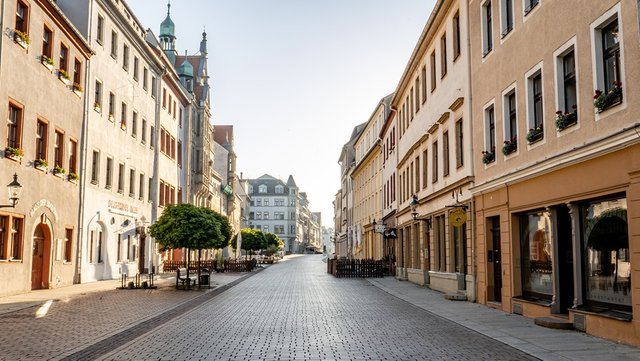How to buy German property as a foreigner

The prospect of investing in German real estate for foreigners is becoming more attractive thanks to the country’s growing housing index, which has been on the rise since 2011. Germany’s standard of living also outshines many other European countries.
Whether you’re interested in buying to rent or for a place to live yourself, you’ll need to get up to speed with the laws and processes surrounding purchasing property in Germany.
Basic expenses
Before choosing a property from our catalogue, take into account that the transaction costs amount to 10–15% of the property’s value. The major buyer's expenditures include:
— property purchase tax: 3.5-6.5%. The exact rate depends on the region you choose to buy property in.
— agent's fee: 3–7%. The agent provides transaction support and expert assessment in addition to getting the paperwork done. These services are vital for international buyers who don’t speak German. Finding a property owner acting as an independent seller makes it easier to save money, however, they don’t tend to exist in Germany because the agent's fee is paid by the buyer.
— notary fee: 1–1.5%. In order to register the documents. The pricier the property, the lower the notary fee.
— fee for adding the property to the land register: €100-600. Paid twice, when the buyer's data is added to the land register (the registration is temporary) and again when the final registration takes place six to eight weeks after the purchase.
The bank’s commission on the transfer of funds to the seller, due diligence on the property, mortgage arrangement fee, and legal entity establishment costs (if applicable) also have to be paid.
Property selection
First of all, you need to determine the purpose of your purchase.
For rental purposes, registering a legal entity may be more beneficial, as Germany has a progressive tax system for individuals with incomes taxed at a rate ranging from 14-47%. Legal entities pay the tax at a fixed rate of 15.8% if they’re only making money on the residential property lease.
Company registration takes anywhere from two to four weeks and costs about €2,000–3,000. Expect to pay between €300–400 per month on the legal entity maintenance.
Next, you need to decide on the property type, location, and your budget. For instance, Bavaria has the lowest property purchase tax rate, just 3.5%, but the local real estate prices are among the highest in the country.
The type of property affects maintenance costs. There’s no property tax as such in the country, however, a land tax exists, which makes apartments cheaper to maintain than homes.
The offer to the seller and property reservation
Having chosen the property, the buyer contacts the seller to sign a reservation agreement via a broker. The buyer will likely need to pay a deposit, the amount of which is subject to individual negotiation (but at least 10%).
During this stage, a bank account has to be opened to pay the seller. It usually takes between five and seven days for the bank to process the buyer's KYC, comprising a review of personal documents and income legality verification.
After the purchase, the opened account can be used to pay taxes, receive the rent, and so on.
Mortgage arrangement
Having accomplished all of the above, the buyer can apply for a mortgage. A mortgage helps landlords to reduce the amount of tax, as the payments are deducted from the income, which makes obtaining a loan more beneficial.
Mortgage terms for non-residents in Germany:
— banks issue loans with an LTV of up to 70%. The exact amount depends on the apartment value.
— the borrower must have an annual income of at least €20,000 per annum and the loan payments must not exceed 35% of the monthly income.
— the lendee's age at the end of the mortgage term must be below 65.
— the minimum mortgage term is five years, but the loan is typically taken out for 25–30 years.
— according to Statista, in 2018, the average national rate was 1.85%. It can reach 2% depending on the bank offer.
Indicating an intention to lease the apartment in the application increases the chances of mortgage approval.
The bank can request:
— a German self-disclosure questionnaire;
— property assessment;
— proof of capital, income, and rental income (if the property has been rented out previously);
— land register extract for the previous six weeks;
— recent tax returns.
All the documents must be translated into German.
Property Due Diligence
Auditors conduct a legal review, technical evaluation, and financial examination. The fee ranges from 0.5-1.5% of the property’s value and takes about a month to complete. The procedure is non-compulsory but is often conducted when buying an expensive property.
Transaction registration by notary
The notary drafts the sales agreement, negotiates its terms with both parties, and describes the mortgage scheme, outstanding restrictions, and property usage regulations in detail.
Once the agreement is signed, the notary places a preliminary property ownership record in the name of the buyer on the land register. Upon signing the agreement, the buyer transfers the money to the seller.
During the signing procedure, the notary reads the agreement out loud in German (through an interpreter if the buyer does not speak German).
Upon transferring the money to the seller and paying all the duties and taxes, the buyer takes ownership and receives the keys.